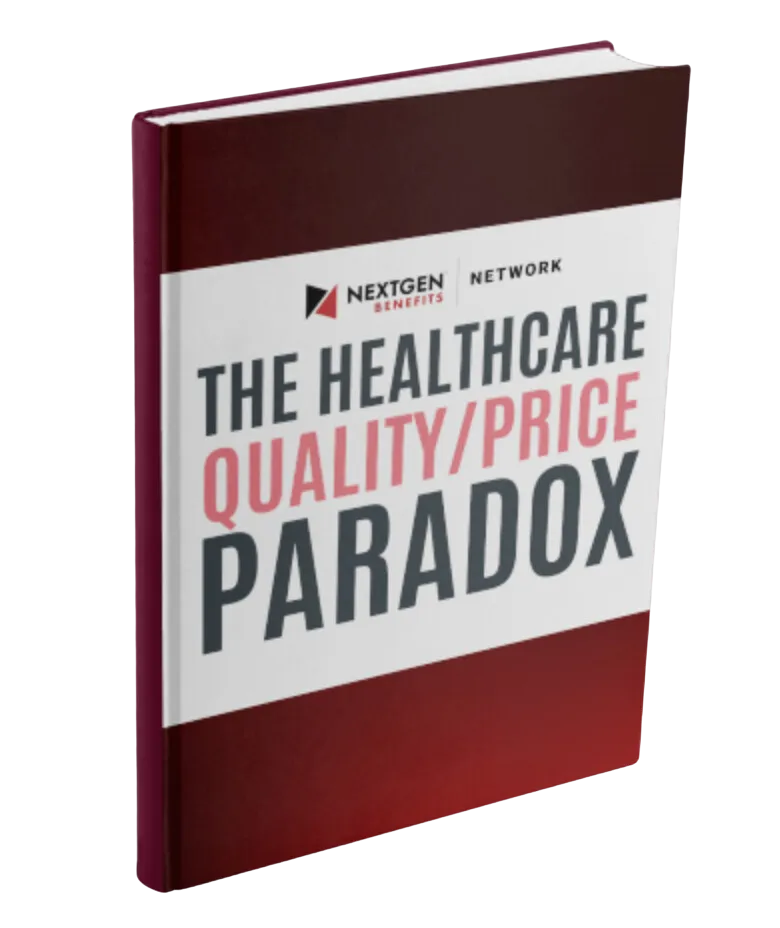
The Invisible Fence:
How to Build a Bridge Between Employees and HR
Imagine you’re an employee with a well-documented and legitimate complaint of sexual harassment. You present your case to Human Resources (HR) expecting them to take appropriate action and instead get handed a buyout package? Or a different scenario in which a highly inappropriate comment is directed your way and is reported to HR. Again, you expect appropriate action and discipline and instead, find yourself in an office, face to face with the accused, being tasked with “working it out amongst yourselves”. The former example is exactly what happened to Google in 2018 which caused a firestorm of similar complaints, thus unveiling and shedding light on the mistrust and confusion that employees hold over HR managers and departments.
Stories like this help explain the findings in the recently released HR Perception Report which reveal that over 80% of workers say they’re afraid of their employer’s HR department. In addition, 85% of those said that this fear makes them hesitant to approach HR to discuss work-related issues, citing concerns such as doubt in confidentiality (37%) and fear of repercussions (31%). The same report also found that 71% of workers think that HR tends to be too involved in office politics — which sheds even more light on the issue at hand. These disconcerting statistics should be reason enough for every business leader to stop and take a good, hard look at what’s going on within their organization.
A key factor contributing to the current employee/HR situation is that the role of the HR department has evolved significantly over the past decade. They’re now in charge of a variety of functions, like payroll and benefits, company culture, training and development, and recruitment to name a few. Most employees today would be hard-pressed to list all the responsibilities that fall under the HR umbrella at their company — much less the specific ones managed by each team member.
One thing that HR is typically responsible for is overseeing company healthcare benefits. Nelson Griswold, the founder of NextGen Benefits, believes that this is part of the problem. “Healthcare is a financial and business strategy, not an HR strategy,” he says. Additionally, he points out that managing healthcare involves confidential and deeply personal information and this may give rise to fear and doubt of how that information can be used or exposed. “When you think about it, HR has to play both sides of the fence, making it difficult to be an effective ally on either side.”
As Niki Ramirez, founder and principal consultant at HR Answers, a human resources consultancy for small businesses shared in an interview with Worklife, “Human resources is such a multi-faceted department that it can be really tricky for employees to decipher, like, what the heck are these HR professional team members doing? And how, if at all, can they help me?”
To improve the situation, it may be time to re-evaluate how your HR department operates. In today’s business environment, Next Gen Benefits believes it makes more sense for you to let your HR team focus on improving their relationship with your employees to bridge the gap of mistrust and fear rather than devoting significant resources and time to managing your healthcare benefits program.
Below are some recommendations to consider that can help your employees gain more confidence in your HR team.
Clearly define HR roles & responsibilities: There should be a written resource available to employees that provides detailed information for each member of the HR team so they can easily reach out to the right person to get support for their specific concerns or problems.
Open the Door: Encourage regular, two-way communication between HR and employees. HR should actively listen to employee concerns and provide clear, honest responses. This can involve regular town hall meetings, feedback sessions, or anonymous suggestion boxes.
Explain conflict resolution practices: HR should be transparent about how they handle different types of conflict, their investigation processes, and how decisions are made so that employees know what to expect when they voice a concern or file a complaint. Providing aggregated and anonymized data about previous issues and resolutions can help reduce speculation and build trust.
Be Consistent: Ensure that HR policies are applied consistently across the organization, regardless of an employee's position. This includes taking swift and appropriate action on complaints, which helps demonstrate that HR is committed to fairness and accountability.
Listen & Learn: HR should work on building personal connections with employees, making them feel valued and supported. Training HR staff in emotional intelligence and active listening can improve the quality of interactions.
Be diligent in case resolution: Implement a structured aftercare process following investigations or disputes. Regular check-ins with affected employees can help ensure issues are fully resolved and prevent lingering resentment.
Use Data Effectively: Use data to identify trends and proactively address potential issues before they escalate. Data-driven initiatives can help tailor HR strategies to meet employee needs more effectively.
Don’t micromanage: Leaders should avoid micromanagement, which can create a culture of fear and stifle innovation. Instead, HR should promote leadership practices that empower employees and encourage autonomy.
Remember, HR's role should be to serve the employees in a way that lends a positive light to working at your company, helping to build long-term loyalty. Developing strong relationships with employees should be their number one priority, not serving the needs of management. Ultimately, you need to allow HR to become a bridge, not act as a fence.
Continue the conversation with a NextGen Benefits consultant who can explain more about why HR shouldn’t be tasked with making difficult decisions on employee benefits. I can provide the expertise you need to gain more control over your healthcare benefits program, so you can provide your employees with better services at lower costs. Schedule an appointment today.

The Healthcare Quality / Price Paradox
Why Higher Cost Doesn't Always Mean Better Care
Nelson Griswold
Nelson Griswold is a NextGen Benefits Adviser.
As a NextGen Benefits Adviser, Nelson implements effective cost-containment solutions, from managing high-cost drugs to identifying high-quality physicians, from utilizing advantageous direct provider contracts to providing cost-effective virtual care programs.
With strategies and plan designs backed by one of the industry's most respected teams of subject matter experts, you can place your unwavering trust in Nelson.
With Nelson's proven expertise and established track record, you can achieve substantial cost savings compared to conventional, status quo health plans from insurance companies and brokers.

info@nextgenbenefits.com
(615) 369 0618
© Copyright 2026. NextGen Benefits and NextGen Benefits Network